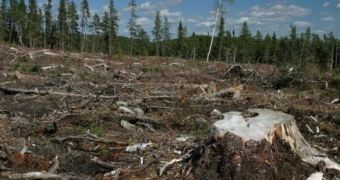Although it is true that massive amounts of fossil fuels only started being burned once the industrial era began, new research shows that pre-industrial agricultural activities also took their toll on the environment.
In an article recently posted on the official website for the Carnegie Institution for Science, it is made clear that carbon emissions dating back to more than just a few decades ago still impact on our natural world and help contribute to global warming.
Julia Pongratz and Ken Caldeira, two of the specialists who investigated this situation, explain how, simply by cutting down forests in order to make room for crops, and by burning the resulting wood, human society has been polluting the environment for quite some time now.
To be more precise: resorting to open fires in order to clear land for farming meant that massive amounts of carbon dioxide are instantly released into the atmosphere.
Seeing how the remaining vegetation is not capable of absorbing this chemical compound at sufficiently fast rates, a part of it remains to accumulate in the air and eventually comes to contribute to climate change.
Apparently, Julia Pongratz told the press that “The relatively small amounts of carbon dioxide emitted many centuries ago continue to affect atmospheric carbon dioxide concentrations and our climate today, though only to a relatively small extent.”
She also added that “looking into the past illustrates that the relatively large amount of carbon dioxide that we are emitting today will continue to have relatively large impacts on the atmosphere and climate for many centuries into the future.”
Interestingly enough, it seems that regions such as China and India have much more significant ratios of pre-industrial carbon pollution than other nations around the world, due to the fact that its rapid population growth urged for massive deforestation campaigns being carried out in relatively small periods of time.

 14 DAY TRIAL //
14 DAY TRIAL //